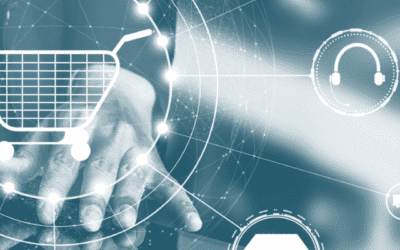Throughout the past few years, the healthcare technology sector has experienced unprecedented growth, reshaping the way healthcare is delivered, managed, and experienced. By 2030, the global healthcare IT market is expected to increase by almost one-fifth of its current value.
This brings new opportunities for businesses in this sector to innovate and enhance their services, ultimately benefiting patients, providers, and the industry as a whole.
Let’s take a look at some of the most important technological trends that improve patient care, diagnosis, treatment outcomes, and medical research.
Cost-effective and scalable healthcare software
Investments in healthcare solutions are on the rise, with a significant increase compared to previous years.
The focus is now broadening beyond telehealth and general health solutions to encompass even more specialized domains, such as mental health and personalized patient experiences.
Furthermore, organizations from the healthcare industry are leveraging the power of automation, eliminating manual and error-prone tasks. For example, solutions for lab automation and clinical automation play a pivotal role in optimizing medical procedures, elevating the quality of patient care, optimizing data analysis capabilities, and ultimately delivering superior healthcare results.
Smart hospitals
Smart hospitals are one of the most promising innovations brought by healthcare technology. They are taking patient care and medical services to the next level with the help of technologies such as artificial intelligence (AI), the Internet of Things (IoT), and data analytics. It’s no wonder that, by 2030, the global smart hospitals market is expected to hit USD 164.88 billion.
Their infrastructure includes a wide range of modern facilities, from smart medical devices to lab automation. Here are some of the most important components:
- Intelligent buildings
- Access control systems
- Interconnected and portable medical devices
- Data management systems
- Integrated clinical information systems
- Advanced telehealth systems
- Lab automation
These respond to different needs, improving existing processes and introducing new ones.
Mobile health applications
Mobile health applications are very popular nowadays, with more and more people using them to monitor health status and well-being. Their functionalities range from physical activity tracking to medication reminders or monitoring of daily symptoms.
The most popular categories of mHealth applications include well-being, nutrition, and sport. However, they only provide extra support and should not be used to replace medical services.
More rigorous cybersecurity standards
One of the major challenges in the healthcare technology industry is the increasing number of cyberattacks. The pharmaceutical and life sciences sectors are prime targets for cybercrime, espionage, and other malicious activities. These can lead to major negative outcomes, including the loss of critical treatment data, exploitation of patient information, reputational damage, and huge financial losses.
Therefore, it is imperative for healthcare organizations to adopt and adhere to stringent security measures. Fortunately, many companies understand the importance of cybersecurity measures, and specialists predict a 15% year-over-year growth for the global healthcare cybersecurity market in the next five years.
Find out more about healthcare technology!
AROBS Group has extensive experience in healthcare technology, offering a wide range of custom solutions. At Berg Software, we specialize in biomedical software engineering, specifically lab automation, automated liquid handling, and product development.
If you’d like to learn more about the latest healthcare technology trends and discover how we can assist you in your digital transformation journey, we encourage you to download our latest medical software whitepaper.
Latest insights _
SAP Promotion management for retail applications
Comprehensive solution to create retail offers and prepare them for advertising. It supports several business areas (Advertising, Marketing, Merchandising, Administration).
SAP Retail assortment planning for retail applications
Comprehensive solution for purchase order recommendations in the SAP ERP, that adapts to seasonal and non-seasonal merchandise. Detailed breakdowns: styles, colors, sizes for fashion items; and KPU-s for non-fashion.
Service delivery management application / Fortune 500 Co.
A Java-based Enterprise Web Application with its own open source frameworks. It enables end-to-end management of service delivery for a Fortune 500 company.



